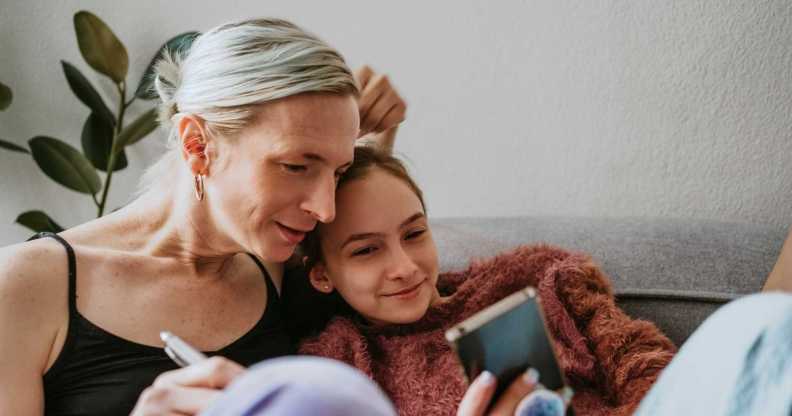Aunties and ‘othermothers’ play huge part in supporting LGBTQ+ youth, new study finds

A new study explores the importance of aunts and ‘othermothers’ in providing significant support for LGBTQ+ young people. (Getty Images)
Aunts and ‘othermothers’, who care for children who are not biologically their own, provide significant support to LGBTQ+ youth, new research has found.
The new finding is according to the paper “Aunties, Aunts, and Tías: The Forgotten Othermother Supporting and Housing LGBTQ Youth”, published in Socius, an open-access journal of the American Sociological Association.
The research shows that aunts and ‘othermothers’ provide both emotional and practical support, including housing, for young LGBTQ+ people.
The authors of the paper, who interviewed 83 young people in the summer of 2022, looked at the role of ‘othermothers’ in families in Southern California’s Inland Empire and in south Texas – two areas identified as understudied places in LGBTQ+ research.
They found that aunts and othermothers play a “critical role” in the lives of LGBTQ youth, partly because they “blur the boundaries of the nuclear family and the home”.
“Aunts and othermothers are often less invested than parents in the idea that young people must conform to traditional heterosexual and cisgender roles,” the study reads.
“One reason aunts may be able to step in to act in the best interests of the child is because aunts are not held accountable to the same regulative power of the moralising gaze that often holds parents (and especially mothers) accountable for their children’s actions and for who their children are.
The study’s authors concluded that aunts and othermothers are able to “allow youth more freedom and acceptance” and therefore, the importance of exploring these relationships cannot be ignored.
In addition to taking youth into their homes, aunts were found to openly support them by following them on social media and educating other family members about LGBTQ+ topics.
“Aunts acted as a buffer between the youth and other family members, especially parents, and provided consistent loving and affirming support,” one of the paper’s authors, Brandon Robinson, an associate professor at the University of California, Riverside and chair of its Gender and Sexuality Studies Department, said.
“This study joins other scholars in not only decentering the nuclear family but also in interrogating what is missed in the lives of LGBTQ youth if scholars only focus on parent-child dynamics,” Robinson continued.
The associate profession also authored the 2020 book Coming Out to the Streets: LGBTQ Youth Experiencing Homelessness.
In writing the paper, which is part of the Family, Housing and Me Project, a long-term study of LGBTQ+ youth, Robinson was joined by Javania Michelle Webb, a postdoctoral student at UC Riverside, and Amy L. Stone, a sociology and anthropology professor at Trinity University in San Antonio.

